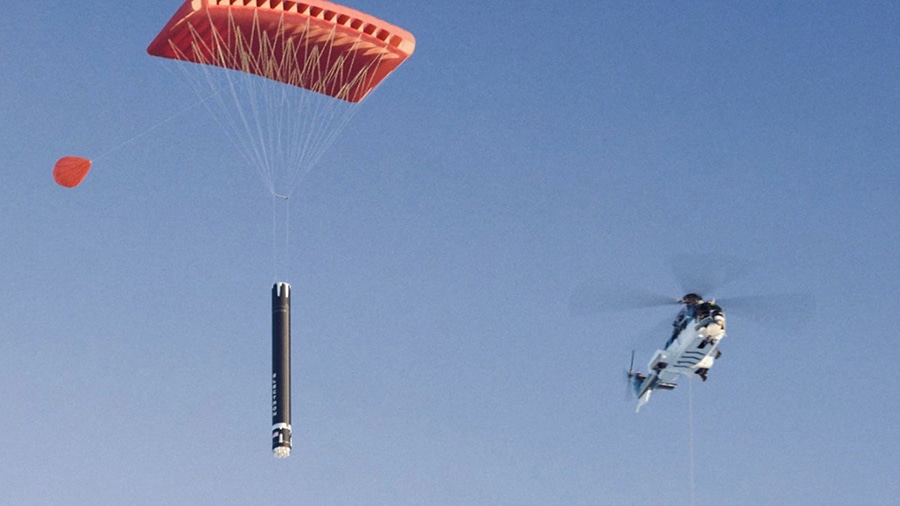It’s not been so long, the ability to reuse rockets rather than burn them in the atmosphere or let them plunge into the ocean was a very unrealistic concept. SpaceX tries to change this singlehandedly, but it seems like it won’t be the only company reusing its rockets for payload deliveries after SpaceX.
Rocket Lab, the leading U.S. company in launching small rockets, has unveiled plans to recover and re-fly the first stage of its Electron launch vehicle. With this announcement, Rocket Lab is aiming to become only the second private company to return an orbital-class rocket booster to land.
The initial plan involves recovering the first stage of its Electron boosters from the ocean and refurbishing it for later. But where things go interesting is the second phase of the strategy! In this phase, the company intends to capture the first stage before it splashes down, in mid-air by helicopter. The helicopter then collects the rocket by snaffling the line that connects it to the parachute and gently places it on a ship to be hauled back to shore.

The Rocket Lab plans to begin first stage recovery attempts in the coming year. It could lead to more launches and lower costs. Instead of building rockets from scratch for every launch, Rocket Lab could reuse vessels and have a turnaround time measured in days instead of weeks. Even single reuse for each rocket would double the effective production rate, as the company chief Peter Beck told CNBC.
The company says the first stage on this mission carried critical instrumentation and experiments that provided data to inform future recovery efforts.
“Reusing the stage of a small launch vehicle is a complex challenge, as there’s little mass margin to dedicate to recovery systems. For a long time, we said we wouldn’t pursue reusability for this very reason, but we’ve been able to develop the technology that could make recovery feasible for Electron. We’re excited to put that technology into practice with a stage recovery attempt in the coming year,” says Mr. Beck.
